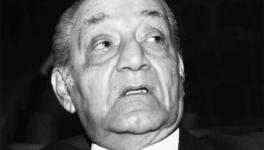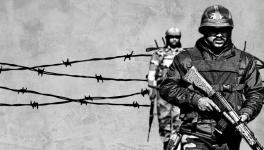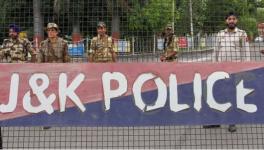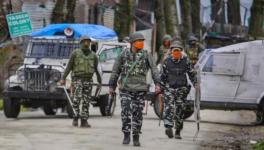Centre Wants to Control Registration of FIRs in J&K, Total Impunity For Army?
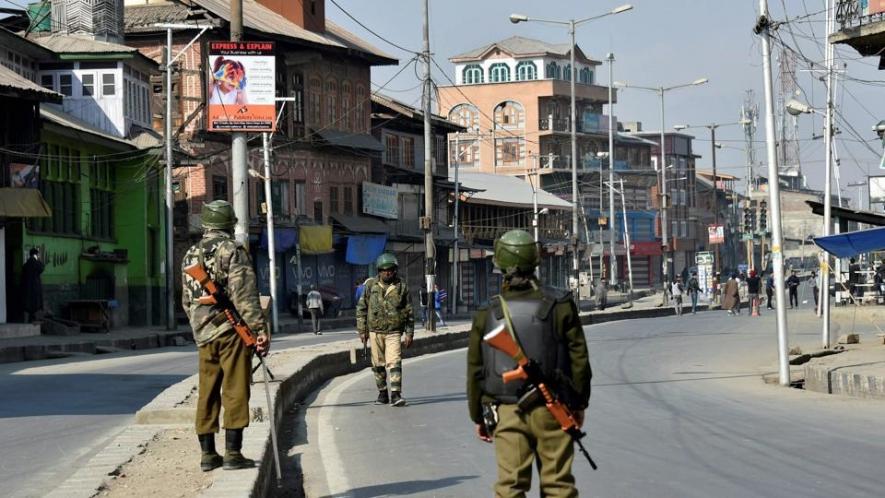
Image Courtesy: Hindustan Times
The armed forces have been granted certain legal immunities in disturbed areas under the Armed Forces (Special) Powers Act (AFSPA), which ensures that no personnel of the Army is dragged to any court after a civilian’s complaint, except, in cases of court martial. This provision limits the legal recourse available to citizens in these areas, such as the state of Jammu and Kashmir. The Act has allowed Army excesses to go unpunished in the past. The one basic provision, which is still available to the residents, is to file a formal complaint with the police, so that primary investigations can be carried out. The central government is now attempting to take this elementary right away as well.
After an incident of Army shooting in Shopian in January, in which three civilians were killed, the police had registered an FIR, and had named an Army major – Major Aditya Kumar – in it. FIRs in such cases have been registered before as well, but have never led to actual prosecution. However it became a widely publicised matter this time, when the national ruling party insisted on the withdrawal of the FIR, as it would “demoralise” the Army. Soon, Kumar’s father filed a petition in the Supreme Court for the FIR to be quashed, in response to which, the court stayed any coercive action against the Major and investigations in the case. The Centre filed a fresh application supporting this demand, and stated that no FIR could have been registered without its permission.
Section 7 of AFSPA states that no prosecution, suit or other legal proceedings can be instituted against the Army without Centre’s sanction. Following this, no court can take cognisance of any chargesheet filed against the armed forces in J&K and take the matter to trial without prior sanction by the Centre. Now, the government is saying that even registration of FIRs falls under the purview of this Section. The Centre also wishes to extend its powers of sanction to any legal proceedings “instituted by any authority whatsoever.”
The application says, “The union of India has considered the matter extensively and is of the view that there is a total bar to the institution of a legal proceeding in the present case, except with the previous sanction of the Central government. The consequence is that the registration of the FIR in question by the state police registered at police station Shopian under section 336, 307, 302 of the Ranbir Penal Code against Major Aditya Kumar is a nullity as no previous sanction was applied for or obtained by the Police prior to registration of the FIR.”
The Centre is attempting to reinterpret prosecution in this affidavit. According to senior advocate Nitya Ramakrishnan, the Centre has interpreted this incorrectly. She told Newsclick that prosecution has been clearly defined in the case of Thomas Dana vs The State of Punjab as arising when a chargesheet is placed before the court.
In 2012, a two-judge bench of the Supreme Court heard the case of the Pathribal fake encounters in J&K, and stated that “institution” means when a court takes cognisance of the matter, and not the simple filing or initiation of proceedings. This affidavit is also challenging the 2012 Pathribal judgement.
It also needs to be noted that the authority deciding if or not a matter should be granted sanction for trial will require certain basic facts about the incident forming the case. How can any facts be ascertained without any kind of primary investigation by the police?
The 2012 Pathribal judgement also recognised this fact. The judgement says, “[For] the assessment of a complaint or the facts necessary to grant sanction against immunity, the chain of events has to be looked into to find out as to whether the act is dutiful and in good faith and not maliciously motivated.”
The judgement also says, “The question to examine as to whether the sanction is required or not under a statute has to be considered at the time of taking cognizance of the offence and not during enquiry or investigation.”
Gautam Navlakha, a prominent democratic rights activist, said that even if the Supreme Court tends to favour the Centre’s argument, it would negate equality before law, as the decision would completely exclude the Army from being accountable, treating them as separate and distinguished.
This attitude can be seen from the statement made by Chief Justice Dipak Misra, who is a part of the bench hearing the matter of the petition filed by Major Aditya’s father. He said, “The petitioner’s son is an Army official, not a common criminal.”
Taking away the right for an FIR to be registered also takes away any means for having any record of an offence committed by the armed forces against civilians. An armed personnel will be protected only so long as they are in service. Post retirement, the possibility of prosecution can arise even years after the offence was committed, since there is no statute of limitation for serious crimes such as murder or sexual violence. If there is no record of any crime, however, then this possibility is also eliminated.
Registration of an FIR is a basic right, which if taken away, will only further alienate the residents of J&K. A five-member constitutional bench of the Supreme Court had (Lalita Kumari vs state of UP) made it mandatory to register the FIRs in every cognisable offence, in a 2013 verdict. Even in areas under AFSPA, it is mandatory for FIRs to be registered in every alleged case of usage of excessive force by the Army resulting in loss of lives, according to a 2016 Supreme Court ruling passed by a bench of Justices Madan B. Lokur and U.U. Lalit.
Retired Lieutenant General HS Panag told Newsclick that the hue and cry over registration of FIRs is unnecessary, as the Centre never grants sanction for prosecution anyway. “No soldier has ever been punished in such cases. It is better for the Army to have its name cleared through an investigation and for the case to be closed,” he said.
The matter of the petition filed by the Major’s father was due for final disposal on April 24th, but has now been deferred to July 16.
Get the latest reports & analysis with people's perspective on Protests, movements & deep analytical videos, discussions of the current affairs in your Telegram app. Subscribe to NewsClick's Telegram channel & get Real-Time updates on stories, as they get published on our website.










